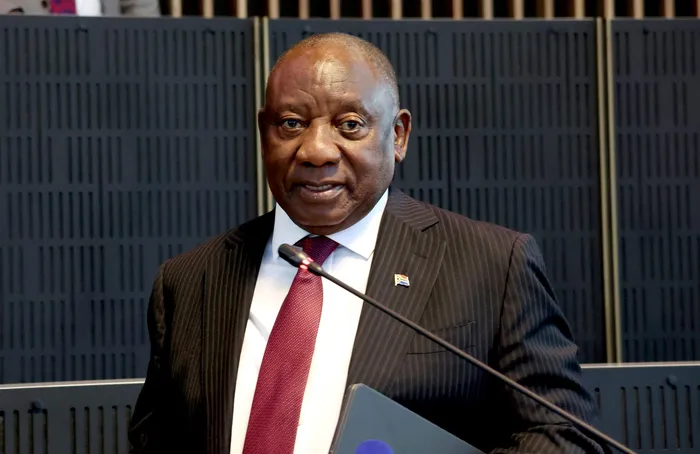Race classifications won't fix the injustices of the past, De Klerk Foundation tells Ramaphosa

President Cyril Ramaphosa has clarified the government's position on race classification.
Image: GCIS
President Cyril Ramaphosa’s clarifying of government’s position on race-based terminology in official records has ignited debate over the country’s progress in redressing the injustices of the past.
He said that while the long-term goal was to create a society where people were not divided by historical race, the use of such classifications remained a difficult but necessary part of the country’s transition from its apartheid past to a future of equality.
The President was responding to questions from members of the National Assembly, particularly the Patriotic Alliance’s Marlon Daniels, who asked why coloured, Indian, Khoisan and white people were not classified as African.
In a statement released on Tuesday night, the FW de Klerk Foundation said Ramaphosa’s utterances in Parliament raised questions about his commitment to the National Constitution’s vision of a non-racial society.
“The continued use of race classification in various laws promulgated over time, serves no purpose other than using it for political patronage and electoral support purposes,” the foundation said.
“The outcome of chasing ethnic or racial targets at the expense of expertise has had disastrous consequences at all levels of government, state-owned enterprises, and especially on service delivery at municipal level, in schools, hospitals and so many other public institutions,” it added.
“And it is the poorest of the poor, the black majority, that suffers.”
Christo van der Rheede, Executive Director of the FW de Klerk Foundation, said that alternative ways of overcoming the legacies of the past should be explored, and that government should devise a new system balancing the need for redress with merit.
He suggested using a diverse and data-driven range of instruments to determine the social status of citizens. Government should also prioritise mentoring and learnership programs that primarily target economically and educationally disadvantaged people.
Furthermore, skills, expertise, and the ability to deliver should be the determining factors in appointing people to critical government positions.
“Reverting back to outdated, divisive and humiliating race-classifications and the use of employment equity targets do not help at all to overcome the injustices of the past. In fact, the past thirty years have proved that such blunt instruments do more harm than good,” Van der Rheede said.
“Any society that builds a future on ethnicity or skin colour is doomed to fail.”
He added that the country was currently bleeding talent, which if leveraged, could have greatly contributed to overcoming the legacies of the past.
In Parliament, Ramaphosa said that until South Africa had reached its goal of equality for all people, there would be circumstances when we need to use such terminology.
He said the country’s national statistics agency, Stats SA, continues to use racial categories such as Black African, Coloured, Indian/Asian, and White in the census and other reporting.
“Our responsibility is to ensure that these terms ultimately make the differences they refer to less and less important, until they are rendered meaningless and no longer serve any purpose,” Ramaphosa said.
Get your news on the go, click here to join the IOL News WhatsApp channel
IOL Politics
Related Topics:
